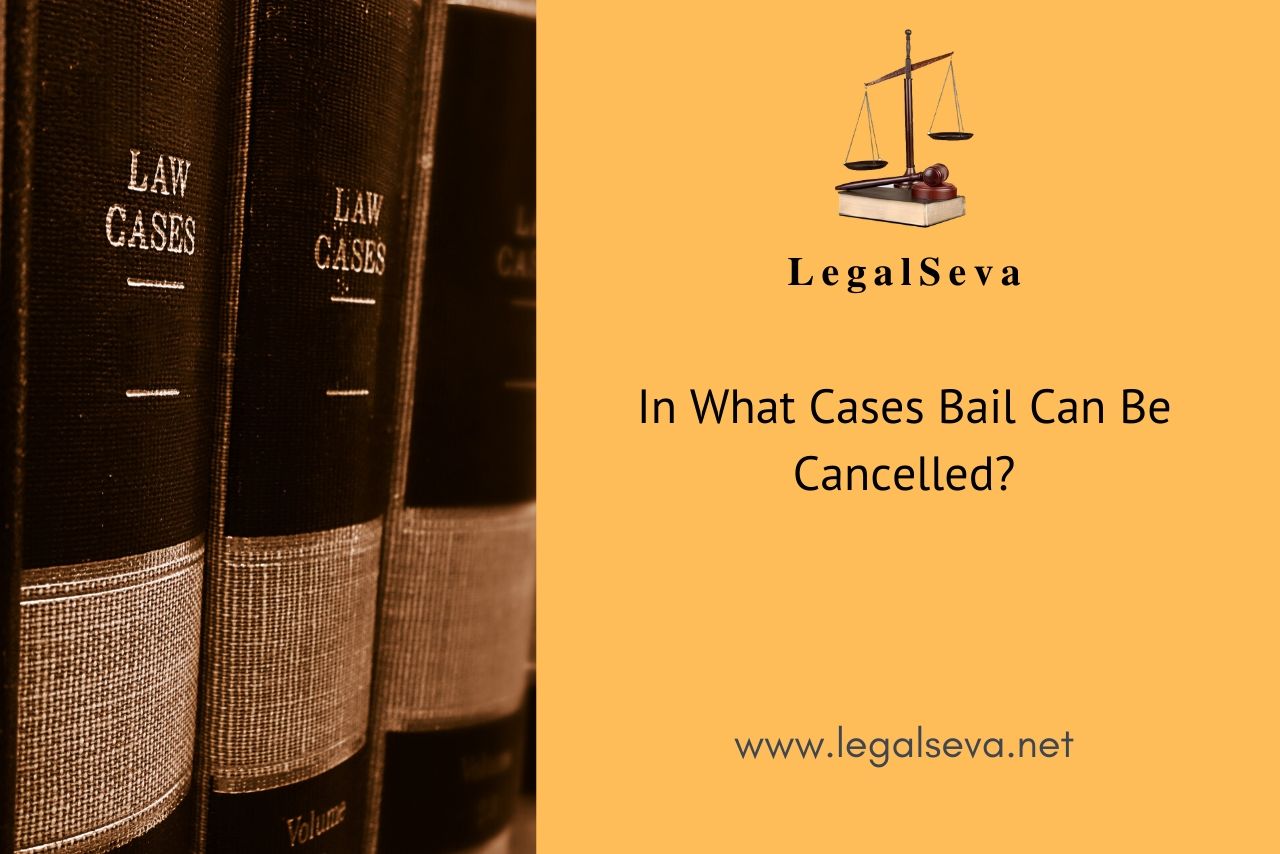Last Updated on February 5, 2019 by Legalseva.net
If the courts have power to grant bails then they also have the power to cancel it.
Admission to bail has a risk that the defendant will not reappear in the court if he is given liberty. So the Legislature provides for cancellation of bail under such situation. In the Code of Criminal Procedure 1973 certain section like sec 437(5) and 439(2) provide for cancellation of bails. The court has the power to evoke the order of bail in the court only and not in officer in charge of the police station even though the bail might have been granted by the latter one.
In case of a non-bailable offense any court which has released a person on bail may, if it considers it necessary so to do, cancel the bail and direct such person be arrested, and committed to custody.
Also Read- Bail, Anticipatory Bail, Regular Bail, Interim Bail in Chandigarh
Sec 437(5) says that Cancellation necessarily involves a review of decision already made and can by and large be only permitted if by way of supervening circumstances, it would no longer be conducted to a fair trial to allow the accused to retain his freedom during the trial.
Under Section 439(2) a high Court may commit a person released on bail by any court including the sessions court to custody, if it thinks appropriate to do so. However, a Sessions Court cannot cancel a bail which has already been granted by the High court unless new circumstances arise during the progress of the trial after the accused person has been admitted to bail by the high Court.
Also Read- APPREHENSION OF ARREST: GET AN ANTICIPATORY BAIL.
The Supreme Court may also cancel bail granted by High court if it is proved that the accused tampers with evidence. Irrespective of the question whether the offense is Bailable or Non-Bailable a high cold or Sessions Court may direct that any person who has been released on bail be arrested, and commit him to custody .
The court considering the application for the cancellation has to examine whether irrelevant material of substantial nature was taken into account or relevant factors were omitted from consideration while granting bail. In Public Prosecutor v George Williams the Madras Hugh Court held following five points which lays grounds for cancellation of bail:-
1. Where the person on bail, during the period of the bail, commits the very same offence for which he is being tried or has been convicted, and thereby proves his utter unfitness to be on bail
2. If he hampers the investigation
3. If he tampers with the evidence
4. If he runs away to foreign country or goes underground
5. If he commits act of violence in revenge against the police and the prosecution witness
Then in all cases the bail of the person can be cancelled.
Also Read- ANTICIPATORY BAIL FROM HIGH COURT
The grounds identified for cancellation of bail include a bail order having been procured on misrepresentation of facts, bench selection, on inadequate improper exercise of discretion by the judges or on the proof of the accused interfering with investigation or trial. Where investigation was not progressing as a custodial interrogation was required in a case of misappropriation of public funds and corruption, cancellation of anticipatory bail was affirmed by the Supreme Court.
There is no rule that the judge who granted bail should hear the petition for cancellation. The Supreme Court has categorically rules that the High Courts power under section 439(2) could be exercised not only at the instance of the State or the public prosecutor, but also at the instance of the aggrieved party. Nor is it disputed that the said power can be exercised suo motu by the High Court.
For more info please call 99888-17966.
This post has been written by Aarihanta Goyal of Manipal university, Jaipur (2020) Batch.


